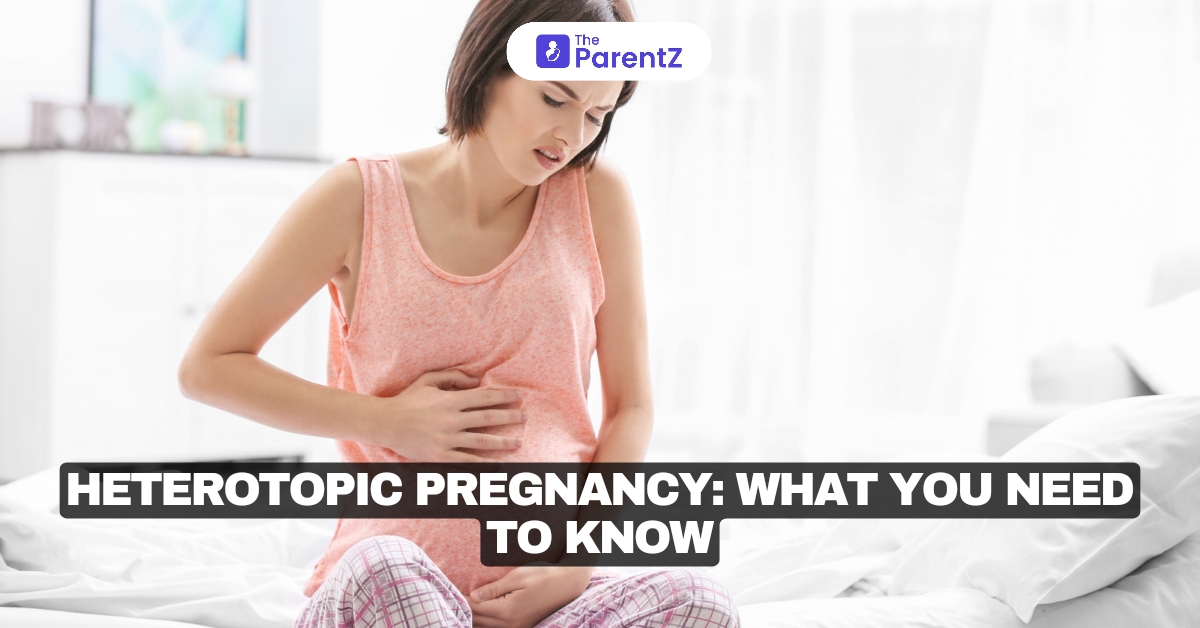Heterotopic pregnancy is a rare and serious condition that occurs when a woman has dual pregnancies—intrauterine and ectopic pregnancy simultaneously. While ectopic pregnancy refers to pregnancy outside the uterus and most likely occurs in the fallopian tube, abdomen, ovary, or cervix, intrauterine pregnancy can progress normally. It is the ectopic pregnancy that turns out to be the reason for immediate medical attention. Heterotopic pregnancy occurs in about less than one percent of all pregnancies.
Read this article to learn about heterotopic pregnancy, its causes, risk factors, symptoms, treatment, and complications in detail.
Causes and Risk Factors Associated With Heterotopic Pregnancy
Women who undergo procedures, such as in vitro fertilization (IVF), are at an increased risk of developing such a pregnancy complication. Some of the associated risk factors that increase the likelihood include
- An history of ectopic pregnancy
- Infections such as pelvic inflammatory disease (PID) that results in scarring of the fallopian tube.
- An history of surgical procedures such as those of the fallopian tube, including tubal ligation and reconstruction.
- Use of medication that stimulates ovulation, which increases the chances of the release of multiple eggs.
Symptoms
While it's difficult to diagnose the concern as the symptoms of intrauterine pregnancy may cover those of ectopic pregnancy. However, some of the common symptoms include
- Pain on one side of the abdomen or pelvis
- Spotting or vaginal bleeding
- Shoulder pain (indication of internal bleeding)
- Tenderness in abdomen
- Abdominal swelling
Diagnosis and Treatment of Heterotopic Pregnancy
A transvaginal ultrasound is prescribed to diagnose the presence of intrauterine pregnancy. If suspected, in some cases, a blood test for measuring hCG levels is also considered. The treatment, however, entirely depends on the size and location of ectopic and intrauterine pregnancies, wherein healthcare providers focus more on preserving the intrauterine pregnancy and terminating the ectopic pregnancy to reduce the risk of severe complications.
In most cases, surgical procedures like laparoscopy are used to remove the ectopic tissue. Medications might also be considered to terminate ectopic pregnancy, but they may have harmful side effects on the intrauterine pregnancy as well. In rare cases, when the ectopic pregnancy is small, your healthcare provider may only closely monitor instead of immediate surgery.
Complications of Heterotopic Pregnancy
While heterotopic pregnancy is a rare condition, it poses significant complications to both the mother and fetal health. Some key complications include
- Rupture of ectopic pregnancy, which may lead to severe life-threatening internal bleeding. Symptoms like dizziness, sudden sharp abdominal pain, and shock may indicate the rupture of an ectopic pregnancy.
- Hemorrhage
- Loss of intrauterine pregnancy
- Preterm labor
- Infections like sepsis
- Anemia
- Complications in future fertility
Conclusion
Heterotopic pregnancy is a serious complication that increases the risk of hemorrhage, anemia, preterm labor, and issues in future fertility. Therefore, it is important to identify the symptoms at the earliest. If you suspect a heterotopic pregnancy, seek your healthcare provider immediately.





Be the first one to comment on this story.